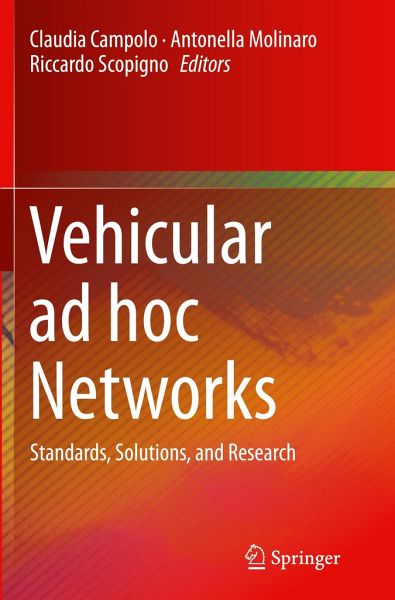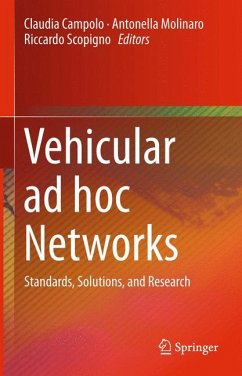
Vehicular ad hoc Networks
Standards, Solutions, and Research
Herausgegeben: Campolo, Claudia; Molinaro, Antonella; Scopigno, Riccardo
Versandkostenfrei!
Versandfertig in 6-10 Tagen
129,99 €
inkl. MwSt.

PAYBACK Punkte
65 °P sammeln!
This book presents vehicular ad-hoc networks (VANETs) from the their onset, gradually going into technical details, providing a clear understanding of both theoretical foundations and more practical investigation. The editors gathered top-ranking authors to provide comprehensiveness and timely content; the invited authors were carefully selected from a list of who's who in the respective field of interest: there are as many from Academia as from Standardization and Industry sectors from around the world. The covered topics are organized around five Parts starting from an historical overview of...
This book presents vehicular ad-hoc networks (VANETs) from the their onset, gradually going into technical details, providing a clear understanding of both theoretical foundations and more practical investigation. The editors gathered top-ranking authors to provide comprehensiveness and timely content; the invited authors were carefully selected from a list of who's who in the respective field of interest: there are as many from Academia as from Standardization and Industry sectors from around the world. The covered topics are organized around five Parts starting from an historical overview of vehicular communications and standardization/harmonization activities (Part I), then progressing to the theoretical foundations of VANETs and a description of the day-one standard-compliant solutions (Part II), hence going into details of vehicular networking and security (Part III) and to the tools to study VANETs, from mobility and channel models, to network simulators and field trial methodologies (Part IV), and finally looking into the future of VANETs by investigating alternative, complementary communication technologies, innovative networking paradigms and visionary applications (Part V). The way the content is organized, with a differentiated level of technical details, makes the book a valuable reference for a large pool of target readers ranging from undergraduate, graduate and PhD students, to wireless scientists and engineers, to service providers and stakeholders in the automotive, ITS, ICT sectors.












